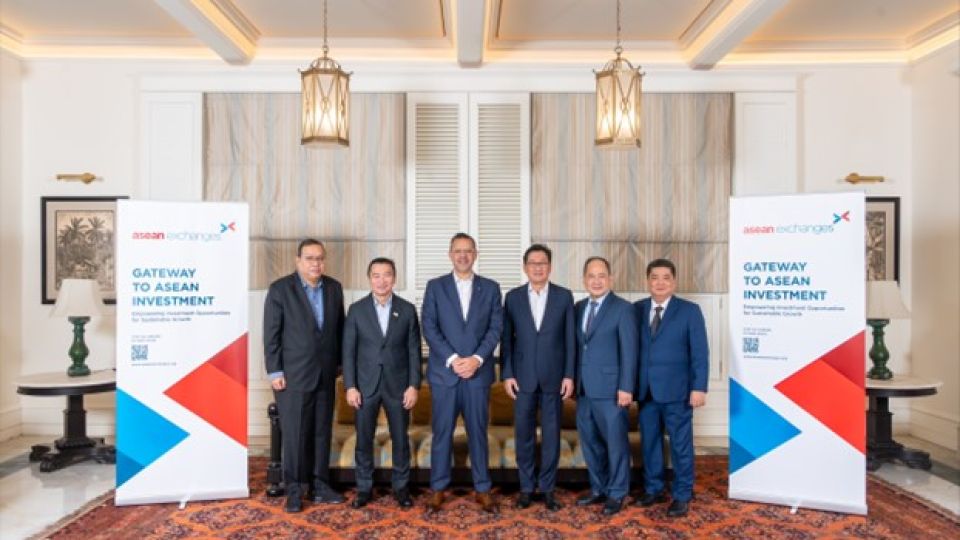July 19, 2024
HANOI — Six major stock exchanges in ASEAN, Malaysia, Indonesia, the Philippines, Singapore, Thailand and Việt Nam, plan to connect trading and develop a standardised environmental, social and governance (ESG) curriculum for listed companies in the region.
The establishment of an ASEAN ESG Award to honour exemplary ESG practices by listed organisations is also being considered.
Bursa Malaysia hosted the 37th ASEAN Exchanges CEO Meeting in Penang, Malaysia, in early July. The conference gathered leaders from the stock exchanges of Malaysia, Indonesia, the Philippines, Singapore, Thailand, Việt Nam, Cambodia and Laos. Nguyễn Tiến Dũng, Deputy General Director of the Vietnam Stock Exchange, attended the conference. Leaders from the Cambodia and Laos stock exchanges participated as observers.
The conference discussed initiatives to make regional securities more competitive, particularly by focusing on a sustainable ecosystem and regional market connectivity.
In an announcement on 16 July about promoting regional market connectivity, Bursa Malaysia stated that ASEAN stock exchanges agreed to jointly develop depository receipt products at each exchange.
Depository receipts are certificates representing shares of a foreign company traded on the domestic stock exchange. The aim is to expand investor access in each country to securities from neighbouring countries.
This move follows the positive outcomes from the depository receipt connectivity agreement between the Singapore Exchange (SGX) and the Stock Exchange of Thailand (SET) last year.
On the sustainability front, Bursa Malaysia noted that last year saw progress with increased information sharing among ASEAN exchanges and the adoption of a common set of ESG indices.
At the conference, ASEAN exchange leaders also agreed to pursue four proof-of-concept projects over the next three years. These include plans to establish ASEAN data infrastructure to harmonise data structures and standards, forming an overall ASEAN perspective and creating a unified operating model.
ASEAN stock exchanges also plan to build capacity for listed organisations by developing a standardised ASEAN ESG curriculum based on local and global requirements. The curriculum is designed to support listed organisations in achieving an effective, automated and scalable ESG assurance process.
Other projects include transition financing for corporate suppliers. Banks will offer preferential loan programmes linked to environmental disclosures and decarbonisation commitments.
ASEAN exchanges are also considering establishing an ASEAN ESG Award to honour exemplary ESG practices by listed organisations. The award will help regional listed organisations enhance their corporate standing on the international stage. These four proof-of-concept projects aim to establish a sustainable ecosystem for the regional stock markets.
The ASEAN Sustainable Ecosystem Connectivity Initiative (ASEAN-ISE) began with a memorandum of understanding between Bursa Malaysia, IDX (Indonesia Stock Exchange) and SET in September 2023. The initiative was later expanded to include SGX in February 2024 and recently the Philippine Stock Exchange (PSE).
“Our proof-of-concept projects focus our collective energy and resources on exploring and implementing viable models in targeted strategic areas,” said Muhamad Umar Swift, CEO of Bursa Malaysia. — VNS


